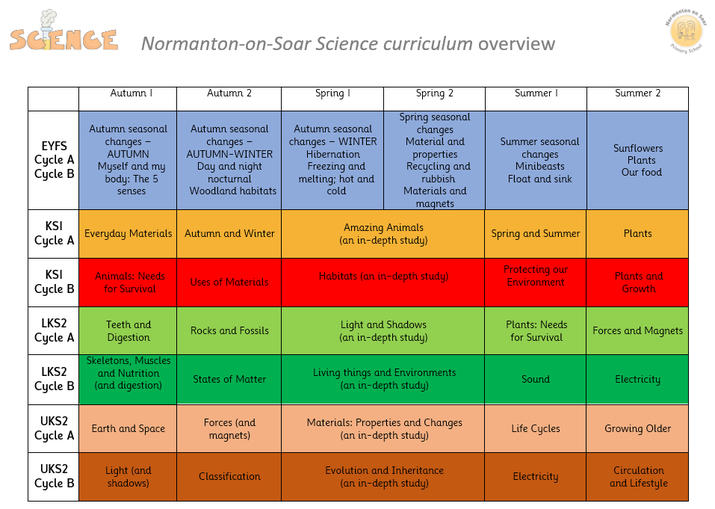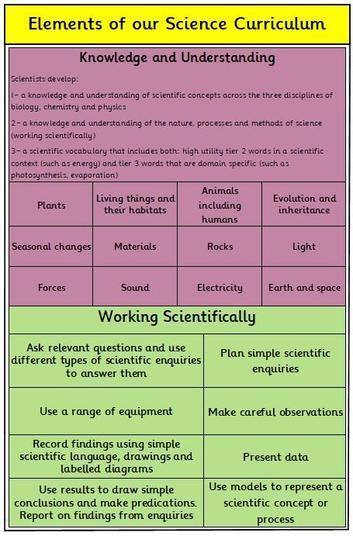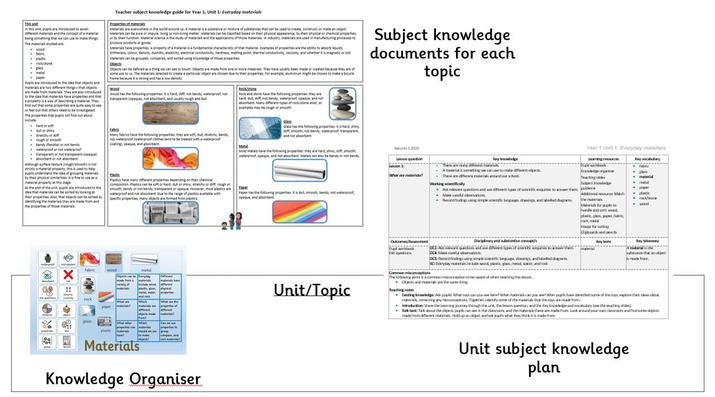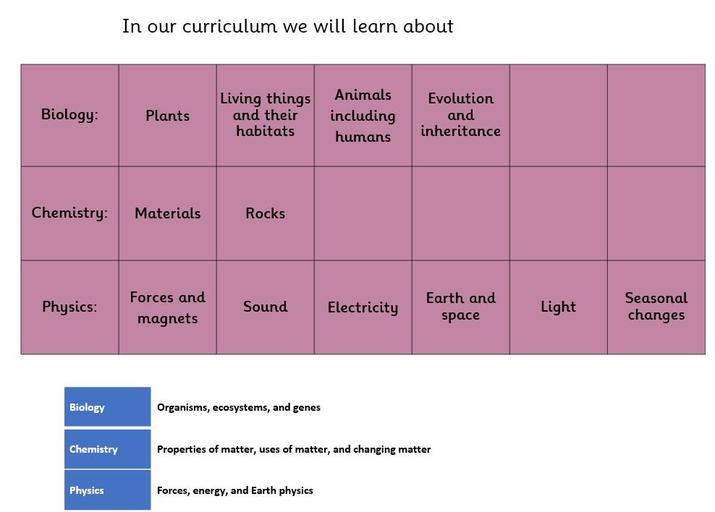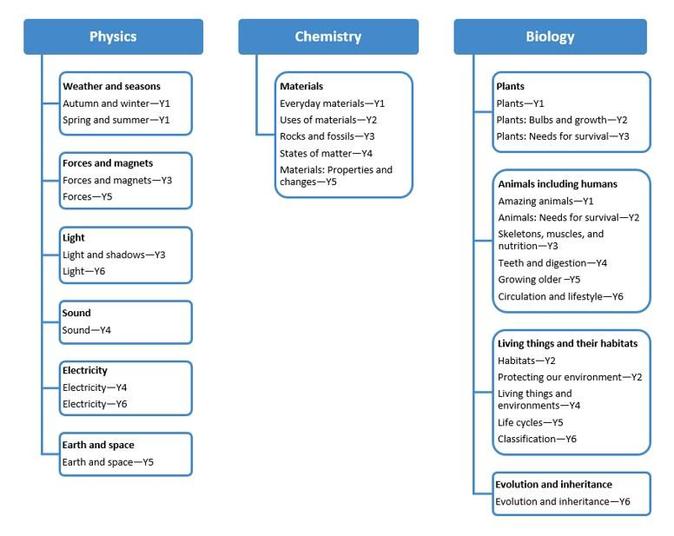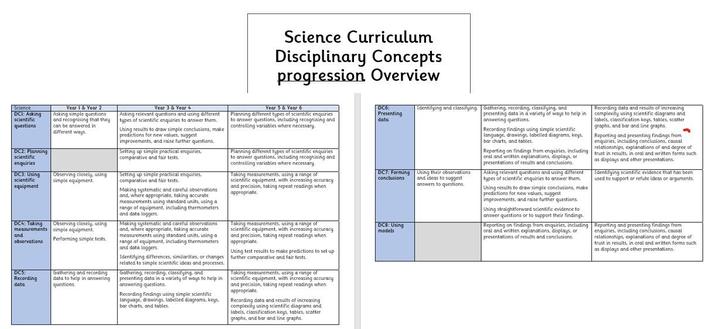Science Overview
The order ensures that pupils have the knowledge they need to work scientifically in a meaningful way.
Pupils will gain knowledge of the scientific concept first, before deepening it through ‘working scientifically’.
The different types of scientific enquiry have been incorporated across the units and, as a result, pupils encounter opportunities to take part in observing over time, pattern seeking, identifying, classifying and grouping, comparative and fair testing, and researching using secondary sources.
Pupils also learn to understand how science works in their own lives and in the lives of others.
Understanding science will support pupils in developing positive attitudes towards the discipline and may mean that pupils are motivated to study science further.
Science matters in the world and therefore pupils have the right to be scientifically literate.
The disciplinary concepts we focus on in KS1 and KS2 are:
DC1: Ask relevant questions and use different types of scientific enquiries to answer them.
DC2: Plan simple scientific enquiries.
DC3: Use a range of equipment.
DC4: Make careful observations.
DC5: Record findings using simple scientific language, drawings, and labelled diagrams.
DC6: Present data.
DC7: Use results to draw simple conclusions and make predictions. Report on findings from enquiries, including oral and written explanations.
DC8: Use models to represent a scientific concept or process.
So when teaching Science at NOS we have…
- clear explanations from teachers
- carefully selected teaching activities
- learning of specific content
- strong subject knowledge using the teacher knowledge guides in each unit
- links with maths where possible
- time each week to deliver quality lessons
- build connected knowledge


